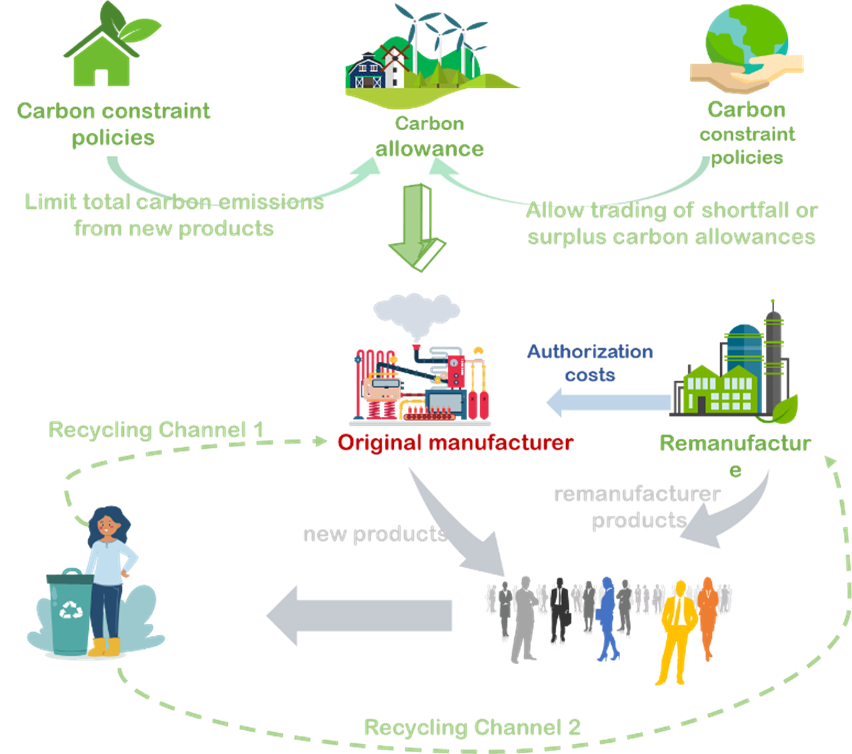
To analyze the impact of allocation methods of carbon allowances on the choice of recycling channels for original manufacturers under the authorized remanufacturing model. A Stackelberg game model of original manufacturer recycling and remanufacturer recycling under the grandfathering rule and benchmarking rule is established, which assumes that both decision-making parties are completely rational, and the impacts of different allocation methods of carbon allowances on new and remanufactured products under different recycling channels are investigated. Further, this paper analyzes the impact of consumer green preference and recycling scale on remanufactured products by using numerical simulation with reference to the parameter settings of related literature. The study found that: (1) grandfathering rule are ineffective in promoting original equipment manufacturers' investment in carbon-reducing technologies. Original equipment manufacturers (OEMs) were more likely to respond to government-set grandfathering rule with strategies to increase product pricing or reduce production; (2) Different carbon allowance allocation methods formulated by the government will not directly affect the original manufacturers' licensing fee decisions, but they will affect the original manufacturers' licensing fee decisions by indirectly acting on consumers' green consumption preferences. (3) When the government formulates the grandfathering rule, the original manufacturer will often choose the remanufacturer recycling channel, thus achieving a win-win situation for the interests of both parties.
Total file downloads: 59